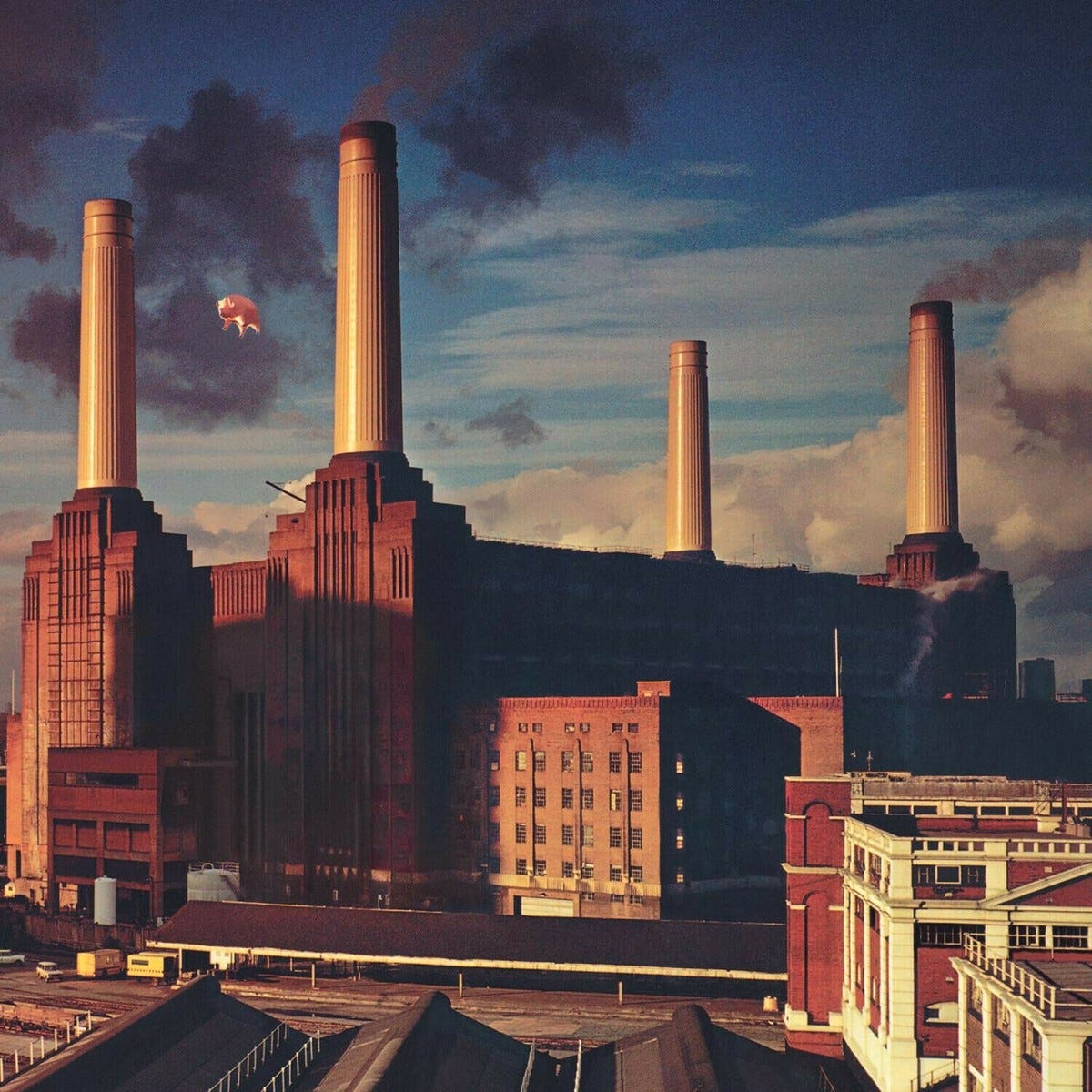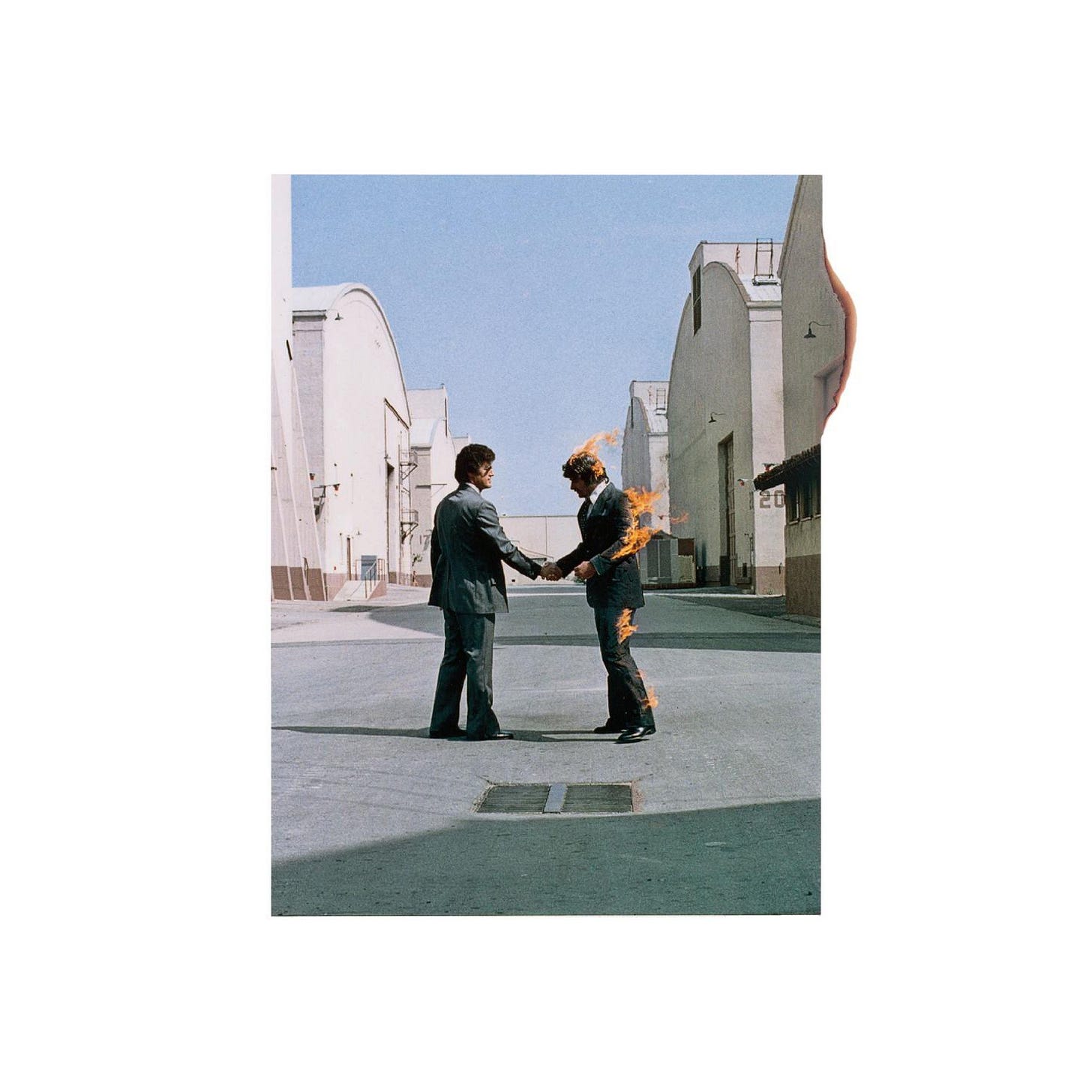For the past nine-ish months, I’ve used this blog, and more specifically these rankings, to flesh out my knowledge on some of the “major” discographies. Talking Heads, Bob Dylan, The Beatles — as much as I enjoy writing opinions people enjoy reading, the machinations behind these deep-dives are purely self-serving. I love acquainting myself with every artist I come across, and this blog has been a providential excuse to spend my free time doing just that.
All that being said, there’s long been one artist I was too afraid to tackle. The reason? I simply didn’t know as much as I thought as should. Outranked only by The Beatles in terms of music-nerd regality, Pink Floyd is often cited as the gateway to appreciating albums as an art form. If you’re a music critic worth your snuff, you should already have years of Floyd opinions and formative memories under your belt.
Naturally, I’ve been embarrassed to admit I didn’t really know squat. Sure, I’d heard Dark Side and most of the hits — but if I’m being completely honest? Prior to this ranking, 13 of these albums were brand new to my ears. Thankfully, the past month has been my own personal Floyd crash-course, combing through every record and consuming every thought-piece, video essay, and analysis I could get my hands on. Suffice to say: I’ve emerged not only a Pink Floyd super-fan, but an aspiring aficionado.
Some obligatory background: Pink Floyd emerged in the late 60s, as frontrunners in London’s underground psych-rock scene. Initially consisting of singer/guitarist Syd Barrett, bassist Roger Waters, drummer Nick Mason, and keyboardist Richard Wright, the band infamously canned Barrett due to worsening mental health issues mere months before the release of their second album. Guitarist David Gilmour was brought in as his replacement, creating the four-piece lineup most commonly associated with the group. After years of money troubles and turbulent metamorphoses, Pink Floyd finally struck gold with the 1973 classic, The Dark Side of the Moon. From there, the rest is history. Massive world tours, critical praise out the wazoo, and a generation of perhaps the most loyal fans in all of rock music.
For this ranking, I will be considering the band’s 15 studio albums (including both soundtracks). Live albums and solo material are not on the table (please listen to/watch Live at Pompeii, though). The criteria, as always, is nebulous and highly subjective, but I was definitely more conscious of how these albums exhibited the band at their “best” rather than my “favorite.” Maybe it’s just the shill in me trying to win back some credibility after admitting years of ignorance — but I really wanted to get this one right.
Now, without further ado…
15. The Endless River (2014)
Unsurprisingly, Pink Floyd’s worst album arrives 40 years after their peak. 1994’s The Divison Bell would have been a fine note to end on, but following Richard Wright’s death in 2006, David Gilmour and Nick Mason gathered much of his leftover material in order to create 2014’s The Endless River. The honorific sentiment is certainly admirable, but the end result turned out to be a glob of flavorless, ambient instrumentals. Every so often, you can catch glimpses of a decent Floyd track buried beneath the fluff (“Louder Than Words” has its fans), but for the most part these songs chock up to nothing more than rock-muzak. As a eulogy for a bandmate and friend, The Endless River is inoffensive, but as the swan song to one of the coolest bands ever? Anticlimax doesn’t even begin to cover it.
Favorite Track: Anisina
14. A Momentary Lapse of Reason (1987)
In 1984, Roger Waters officially cut ties with Pink Floyd, spurring a series of legal battles which left the future of the band uncertain. Once the dust settled, however, David Gilmour had retained the rights to the group, and after re-recruiting Mason and Wright, Pink Floyd — or at least some iteration of it — was back. The return was commemorated by the release of A Momentary Lapse of Reason. I’ll put it this way: if the band’s last album, The Final Cut, was a glorified Waters’ solo project (more on that later); this is just a David Gilmour album in disguise. Hell, barely anything on A Momentary Lapse of Reason sounds like Pink Floyd. The band’s once fresh style is rendered stale and uninspired by lackluster songwriting and a gaudy usage of 80s production. A Momentary Lapse of Reason definitely lives up to its name, because anytime it’s on, I quickly come to my senses and play something else.
Favorite Track: Sorrow
13. The Final Cut (1983)
1979’s The Wall had definitely belonged to Rogers Waters, but you could argue it still sounded like a group effort. The Final Cut? Not so much. For all intents and purposes, Pink Floyd’s twelfth album serves as Roger Waters’ solo debut. Having already lost (fired) Richard Wright, Nick Mason and David Gilmour were left front-row spectators to the Roger show, invited on-stage for the occasional backbeat or guitar solo. The Final Cut is reminiscent of the worst parts of The Wall — boring melodies, shoddy vocals, contrived epiphanies — re-worked to attack Margaret Thatcher and the imperialistic warmongering of the West at large. The music is so damn monotonous; just dirge after dirge of cheesy crescendos and predictable pessimism. When The Final Cut works, it kinda works, but as a full album experience? Those breakthroughs are few and far between.
Favorite Track: The Final Cut
12. Ummagumma (1969)
My father’s never been quick to anger. He can, however, recall screaming at someone who played “Several Species of Small Furry Animals” at a party. Makes sense — most of what Pink Floyd does on their fourth album, Ummagumma, could be considered the worst party-music imaginable. Freshly bereft of Syd Barrett and desperately seeking any modicum of artistic direction, the Floyd gave into their experimental indulgences with reckless abandon. The result is a long-winded and cumbersome mess of a dual-LP, one disc devoted to live renditions of pre-existing material (pretty good) and the other comprised of individual compositions made by each of the band members (pretty bad). Ummagumma has a bit more going for it than the spiritual-bankruptcy of Pink Floyd’s later career, but I can’t promise it’s 81 minutes you won’t want to take back.
Favorite Track: The Narrow Way, Pt. 3
11. More (1969)
The other Pink Floyd album released in 1969, More marks a few interesting firsts for the lads. Not only is it a soundtrack, created for Barbet Schroeder’s film of the same name, but it’s also the first Floyd record made without Syd Barrett. He’d barely played a part in the creation of A Saucerful of Secrets (the album before this one), but the band was largely still able to ape his particular sense of style. Here, they sound far less assured. Composed on a shoe-string budget over the course of two weeks, More feels like Pink Floyd procrastinating the inevitable metamorphosis that comes with losing a leader. Moments of excitement do manage to break through (“The Nile Song”), and some of the folksy cuts are downright wonderful (“Green is the Colour”), but the majority of More plays it too safe and too aimless to leave an impression.
Favorite Track: Green is the Colour
10. The Division Bell (1994)
Few Floyd fans, if any, would name the “Gilmour-era” as their favorite, but most can still agree that The Division Bell is the closest the band ever came to reclaiming their glory days. Still lacking Waters, a slew of new musicians were brought on board for this record. The music is a reflection of that; a grand celebration of Pink Floyd more than a definitive entry in their catalog. Still, The Division Bell is leaps and bounds above the banality of A Momentary Lapse of Reason, maintaining a conceptual focus on communication, or the lack thereof, at the dawn of the 21st century. The record is clean, polished, and prudent… at the cost of an emotional core. Yeah, Gilmour’s guitar sounds as godly ever, but there’s something lacking about the soul of this record. While fun at first, the appeal of Pink Floyd mimicking Pink Floyd — even if it’s a great impression — wears off pretty quick.
Favorite Track: Marooned
9. Obscured by Clouds (1972)
In 1972, Pink Floyd were neck-deep in creating a record that would catapult them to the sorts of prestige and stardom most bands only dream of. Unfortunately, in the present, they were dead broke. So, when Barbet Schroeder once again contacted the band to produce the soundtrack for his latest film, La Valéé — the paycheck was a no-brainer. Obscured by Clouds is nowhere near Pink Floyd’s most essential material, but you’d be remiss to let it slip under your radar entirely. There’s a lovely sense of looseness to this LP; the product of four close friends spitballing ideas without a threshold to aim for. Despite being gatekeepers of rock’s snobbiest pretensions, this record sees the lads ditching 10+ minute epics in favor of short, punchy — sometimes even poppy — cuts. Extracurricular listening or not, Obscured by Clouds feels like the closest we’ll ever get to just kicking back with the Floyd.
Favorite Track: Wot’s… Uh the Deal?
8. A Saucerful of Secrets (1968)
Fun fact: A Saucerful of Secrets marks the one and only time all five Pink Floyd members played together on a studio record. Mere months before the album released, David Gilmour was officially ushered in as Syd Barrett’s replacement, definitively ending the latter’s time with the band. You can certainly feel the winds of change in these tracks, shirking much of the whimsy which dominated their debut and focusing instead on further psychedelic jam sessions (à la “Interstellar Overdrive”). Richard Wright and Roger Waters shoulder the majority of the record’s songwriting duties, and it’s their affinity with spacey, repetitive moods which would pave the Floyd’s pathway moving forward. While historically tragic, the storm of Syd Barrett’s departure does little to cloud A Saucerful of Secrets, making for an excellent (slightly underdeveloped) sophomore effort.
Favorite Track: Set the Controls for the Heart of the Sun
7. Atom Heart Mother (1970)
In 2001, David Gilmour spoke candidly on Pink Floyd’s fifth album: “God, it’s shit.” Brutal, but it makes sense when you consider just how dispirited Pink Floyd were at the dawn of the 70s. Pity those feelings soured how they hear the record… ‘cause they’re honestly missing out. Atom Heart Mother is perhaps the most indefinable entry in Pink Floyd’s discography, being a somewhat random assortment of ideas bound only by the vaguest through-line of English classicism. Side 1 is an orchestral, 24-minute beast, while Side 2 contains a 13-minute dalliance about breakfast. It all plays like Pink Floyd on holiday; terrorizing the British countryside with Gregorian choirs and rattling cornflakes. Whatever Atom Heart Mother may be, don’t take Gilmour’s word for it — you’ll just have to wrangle this ole girl for yourself.
Favorite Track: Summer ‘68
6. The Piper at the Gates of Dawn (1967)
Before they reshaped recorded music, Pink Floyd were re-defining the live show. Awash in kaleidescopic colors, sporting cravats, and led by an enigmatic frontman who sang of cross-dressing and space-travel, the group quickly became the definitive showmen of London’s burgeoning psych-rock scene. The Piper at the Gates of Dawn is an aural distillation of those early performances, marrying the mind-altering vistas of LSD with British peculiarities. Each song goes down like ladlefuls of a mysterious stew, bursting with strange flavors and inscrutable ingredients. The crux of the record is undoubtedly Syd Barrett, whose freak flag provides a true-north for the rest of the band to follow. The Piper at the Gates of Dawn may not be Pink Floyd’s most comprehensive body of work, but as a psychedelic time-capsule and one of the few entries in Barrett’s flash-bang of a career — it’s one hell of a trip.
Favorite Track: Bike
5. The Wall (1979)
It’s only right that the band who re-defined concept albums in the early 70s would go on to epitomize the medium’s potential to the point of redundancy. Pink Floyd’s The Wall is a monolithic rock opera; arguably the most famous narrative ever put to wax. A semi-autobiographical opus written almost entirely by Roger Waters, the story portrays the fractured remains of a rockstar’s psyche as he grapples with the self-imposed isolation of his inner “wall.” Across 26 songs, we’re introduced to an elephantine web of characters, subjects, and accents — and only the minimum amount of breadcrumbs to piece it all together. Things definitely get a bit indulgent at times, but considering that the album was conceived in tandem with a live show (and later a feature film and Broadway musical); theatricality is the bedrock of the appeal. Once you’re able to buy into the sheer spectacle of The Wall, you won’t ever need to find your way out.
Favorite Track: Goodbye Blue Sky
4. Meddle (1971)
Everyone has a Floyd album they’ll defend to the death, and I’ve discovered that mine is their first true masterpiece: 1971’s Meddle. Created rather waywardly — via long-winded jam sessions — Meddle marks a clear crossroads for Pink Floyd. You can still hear the unfettered spirit of their early psych-rock material, but it’s tempered by a growing aptitude for conceptually-driven prog-sagas. This album is a world in and of itself; a series of ethereal tide-pools for your ears to snorkel through. It’s beautiful (“Pillow of Winds”), primal (“One of These Days”), and transcendental (“Echoes”). Unlike the concrete narratives which would come to define Pink Floyd’s most iconic material, this LP succeeds by letting the listener embark on whatever voyage they choose. Climb that hill, reach for that peach, throw those windows wide — there’s no wrong way to Meddle.
Favorite Track: Fearless
3. Animals (1977)
For years, Animals was seen as the black sheep (hehe) of Pink Floyd’s 70s triumphs. Over time, however, the album has seen a resurgence as the “true” Floyd fan’s favorite; the perfect composite of the band’s conceptual and musical ambition. I may not agree to the fullest extent, there’s no denying how seriously Animals kicks ass. While seemingly simple in comparison to Dark Side and the forthcoming Wall, this record’s concept — a vaguely Orwellian portrayal of English classism — might just be Waters’ strongest. In any case, the lyrics are a thing to behold, spitting and spatting ires with the driest of British wits. Oh, and let’s not forget the songs themselves: three enveloping epics winged by dual acoustic bookends. Animals embodies the central contradiction of Pink Floyd’s timeless appeal: life-altering dissertations infectious enough to put most pop songs to shame.
Favorite Track: Dogs
2. The Dark Side of the Moon (1973)
There’s albums, and then there’s albums. Before you can ever speak on The Dark Side of the Moon, you first have to level mountains of myth — a cover synonymous with dorm-room walls, record sales to make your head spin, and needle-drops in sync with the MGM Lion’s third roar. So, what do you get when you strip away all that mystique? Simple: a spectacular album. Born of Roger Water’s concept for a record about “madness,” The Dark Side of the Moon encapsulates the cosmic proportions of Pink Floyd’s creativity within the curated confines of a 43-minute LP. The true genius lies in how well it toes the line between highbrow and populist, capturing universality — time, money, air — with stylistic singularity. What else is there to say? The Dark Side of the Moon has stood the test of time as a true sonic journey, one that will continue to feel personal no matter how many people it reaches.
Favorite Track: Time
1. Wish You Were Here (1974)
Four notes. That’s all Pink Floyd had — after skyrocketing to stardom, lavishing in the thrills of a sold-out tour, and returning to find themselves unmotivated and uninspired — four notes. B♭, F, G, E. It was a riff which conveyed so much: dissatisfaction, alienation, and, most palpably, the lingering ghost of Syd Barrett. Wish You Were Here doesn’t summarize the human condition like its predecessor, it isn’t a labyrinthine epic like The Wall — it’s simply an expression of emotion told with absolute virtuosity. Structurally, sonically, and thematically, this album captures the magic of peak Floyd like lightning in a vinyl. From the expansive effigiation of “Shine On,” to the looming gravitas of “Welcome to the Machine” and “Have a Cigar,” and, of course, the heart-wrenching simplicity of the title track — Wish You Were Here is a fire-walk towards the firm grip of a familiar handshake.
Favorite Track: Shine On You Crazy Diamond, Pts. I-V
Is this…

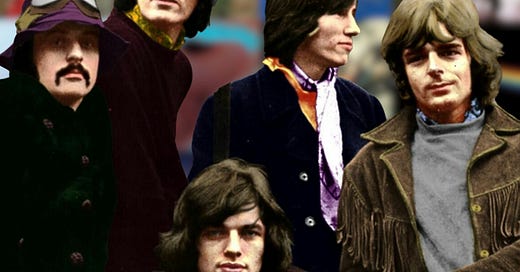


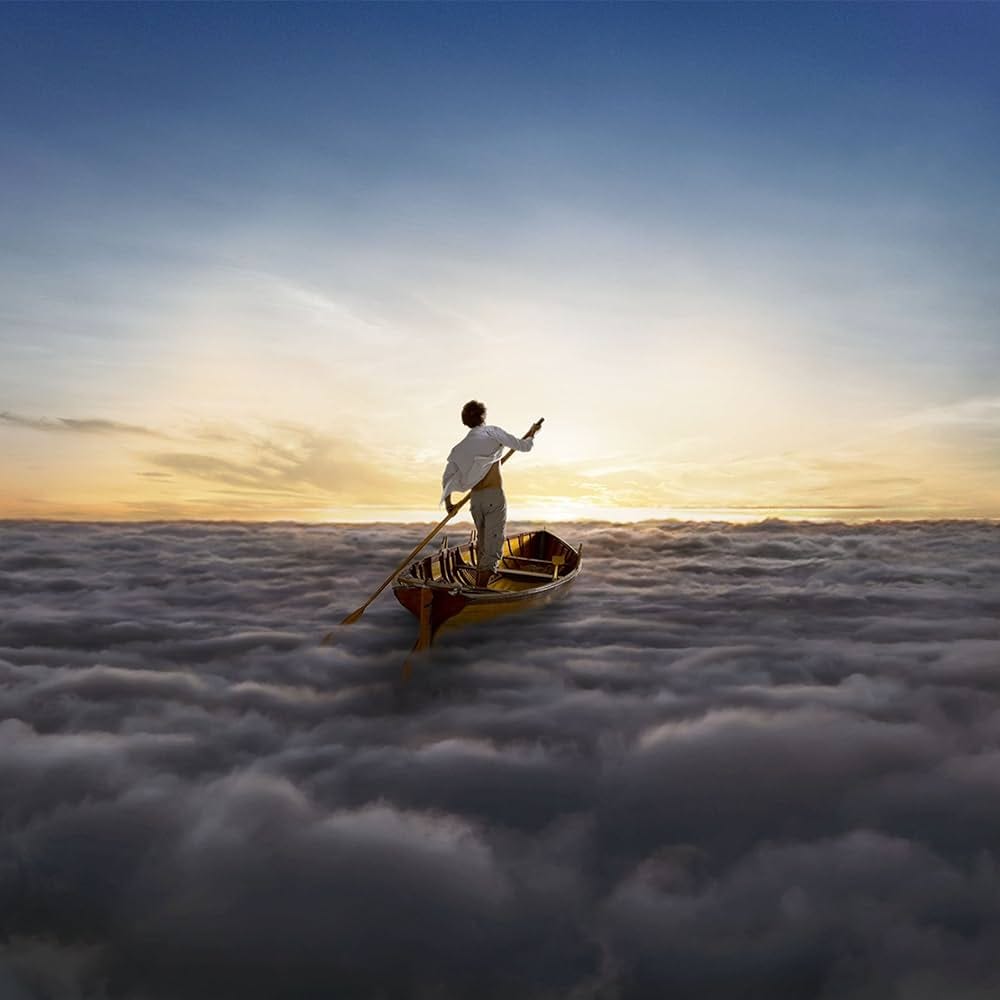

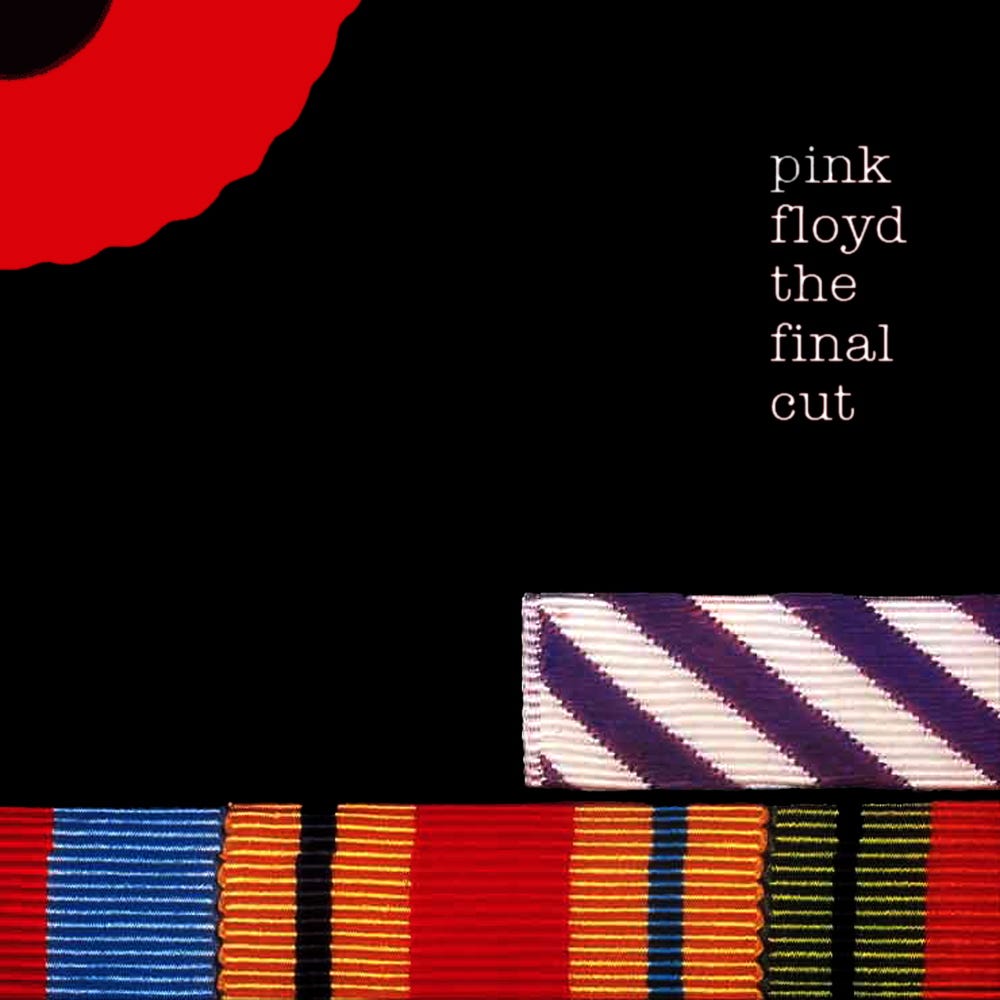


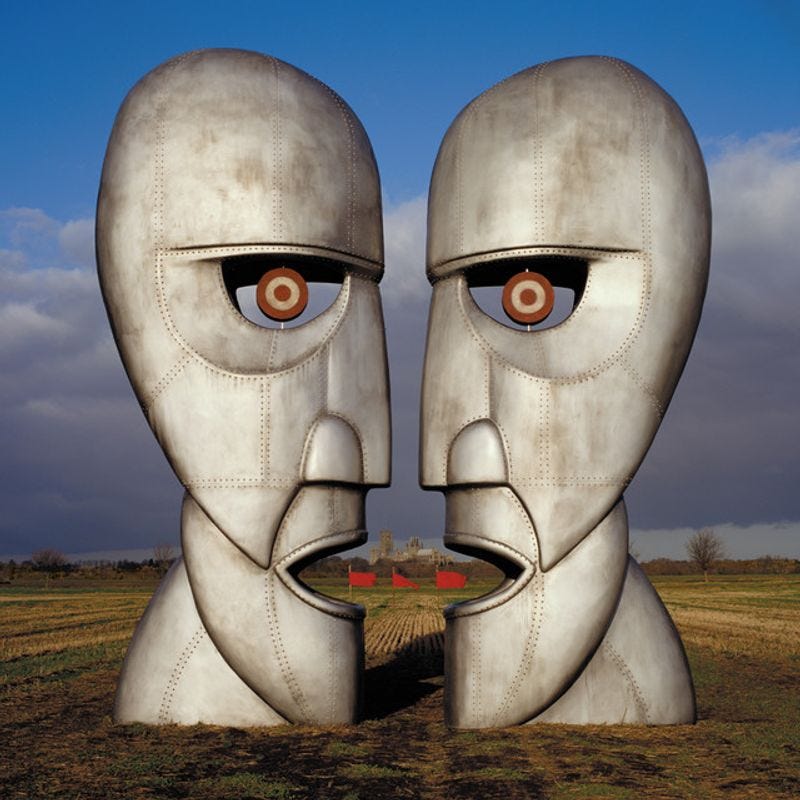

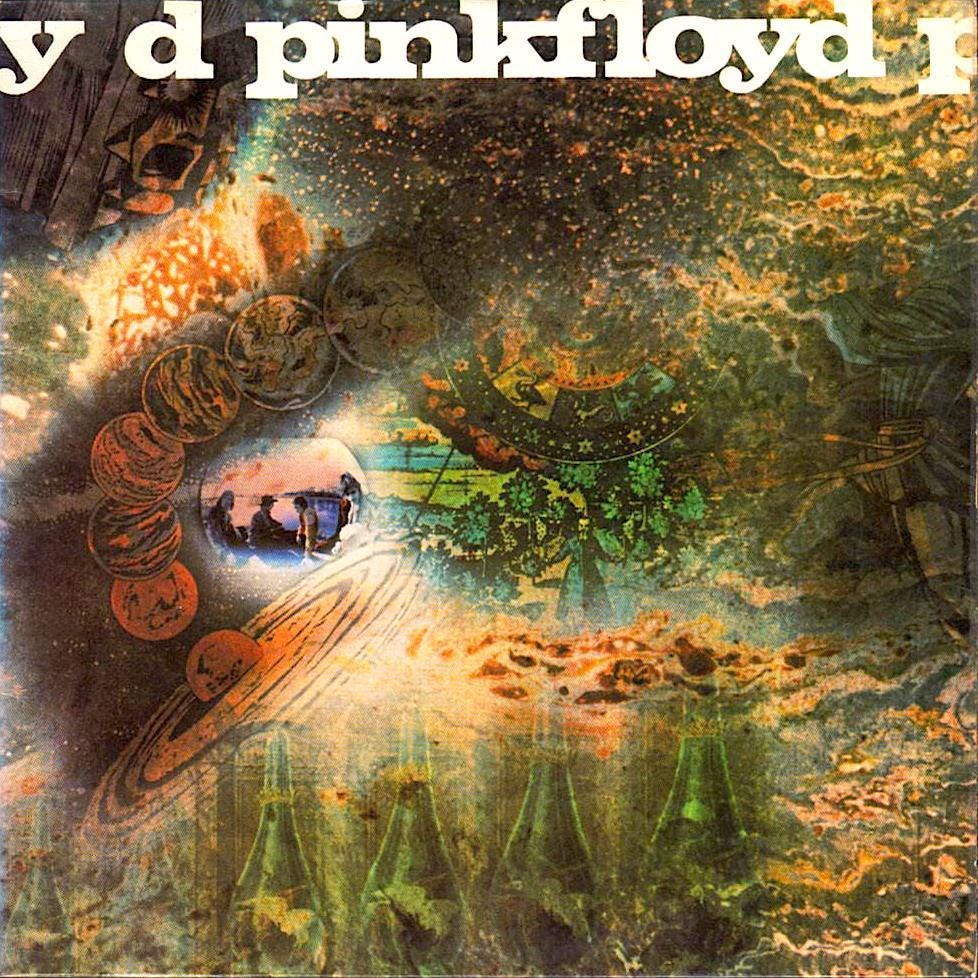
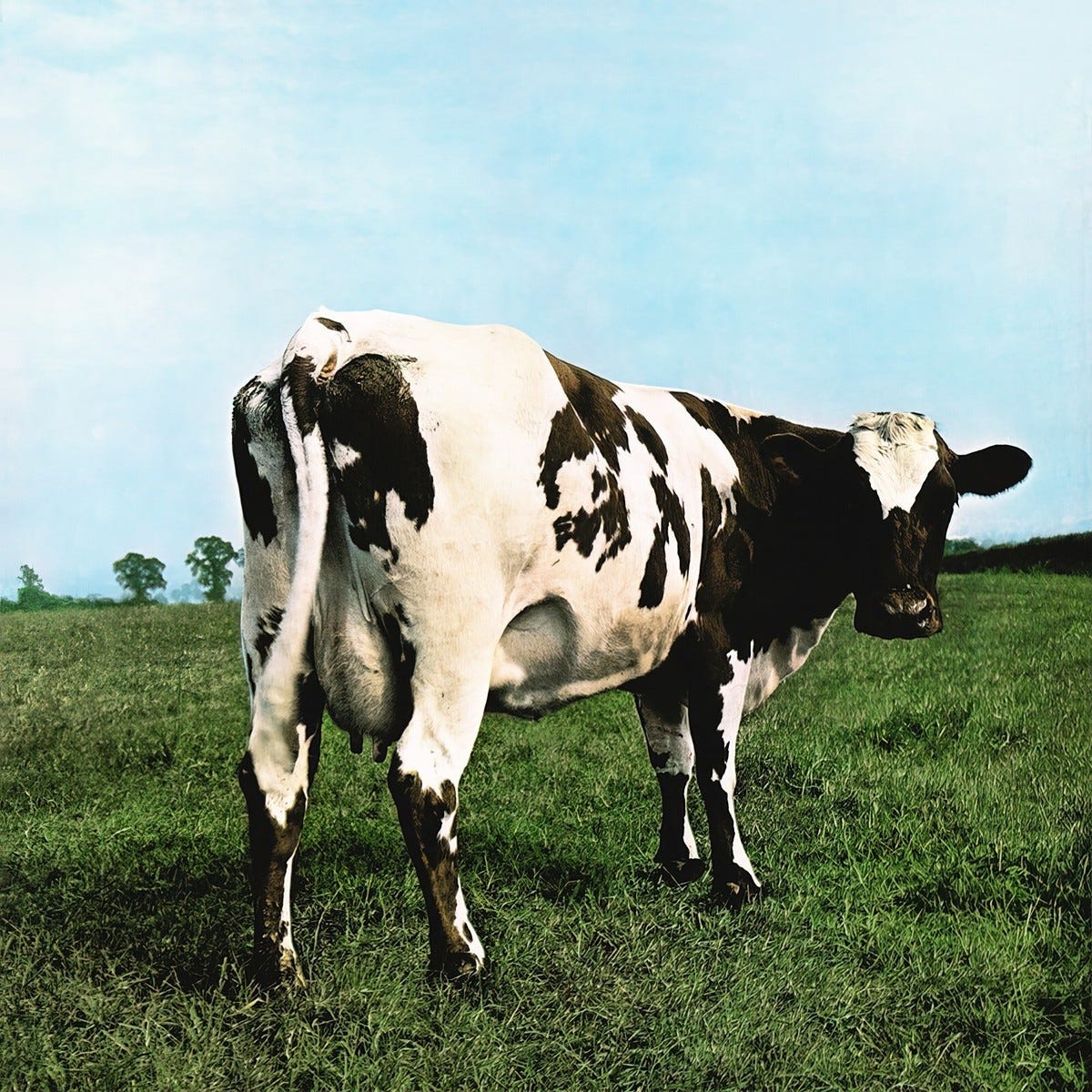
![Hi-res album cover art for Pink Floyd - The Piper at the Gates of Dawn [2903x2903] : r/pinkfloyd Hi-res album cover art for Pink Floyd - The Piper at the Gates of Dawn [2903x2903] : r/pinkfloyd](https://substackcdn.com/image/fetch/$s_!aTYs!,w_1456,c_limit,f_auto,q_auto:good,fl_progressive:steep/https%3A%2F%2Fsubstack-post-media.s3.amazonaws.com%2Fpublic%2Fimages%2F61e6964c-3108-491c-9845-8d084734c26d_2903x2903.jpeg)


